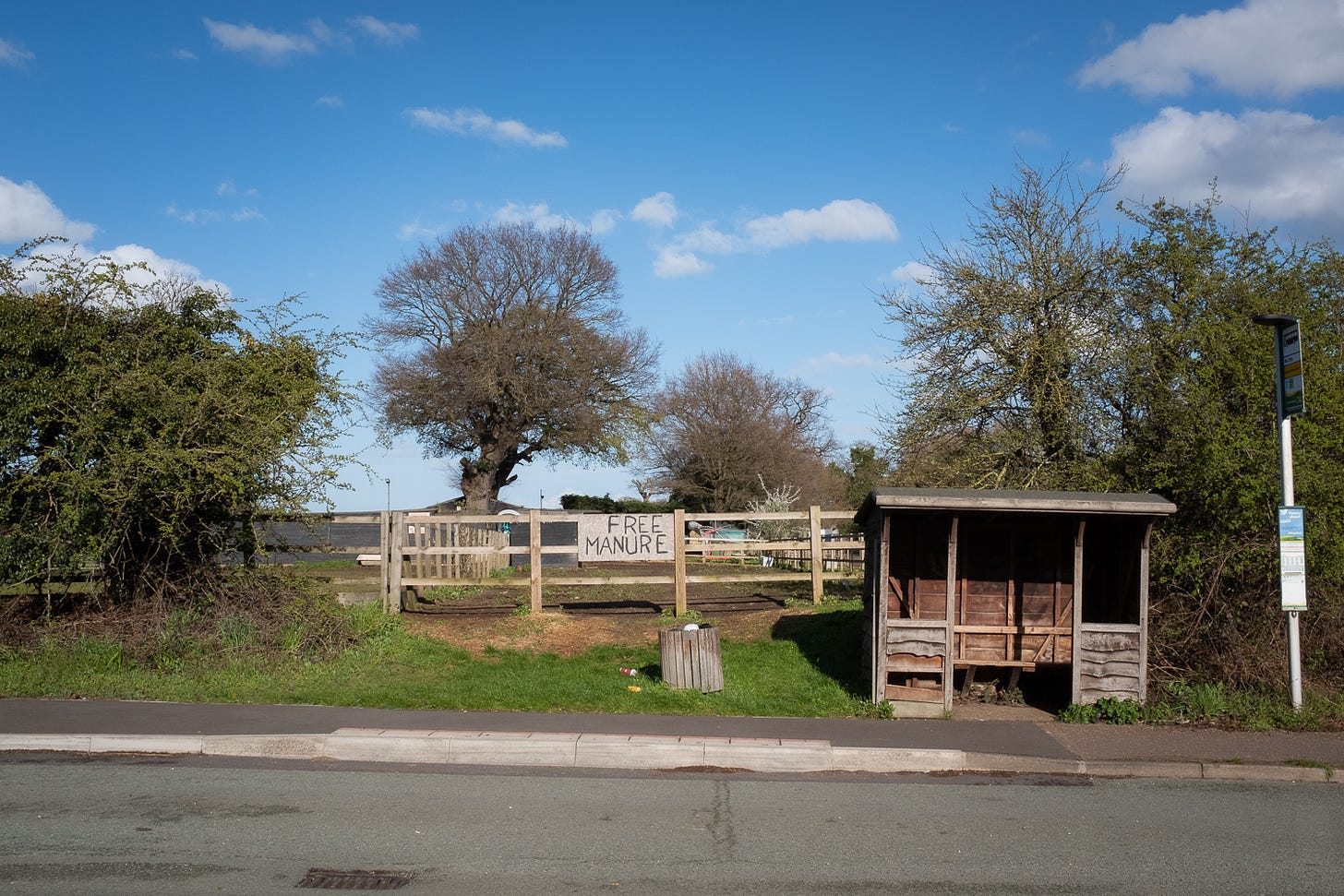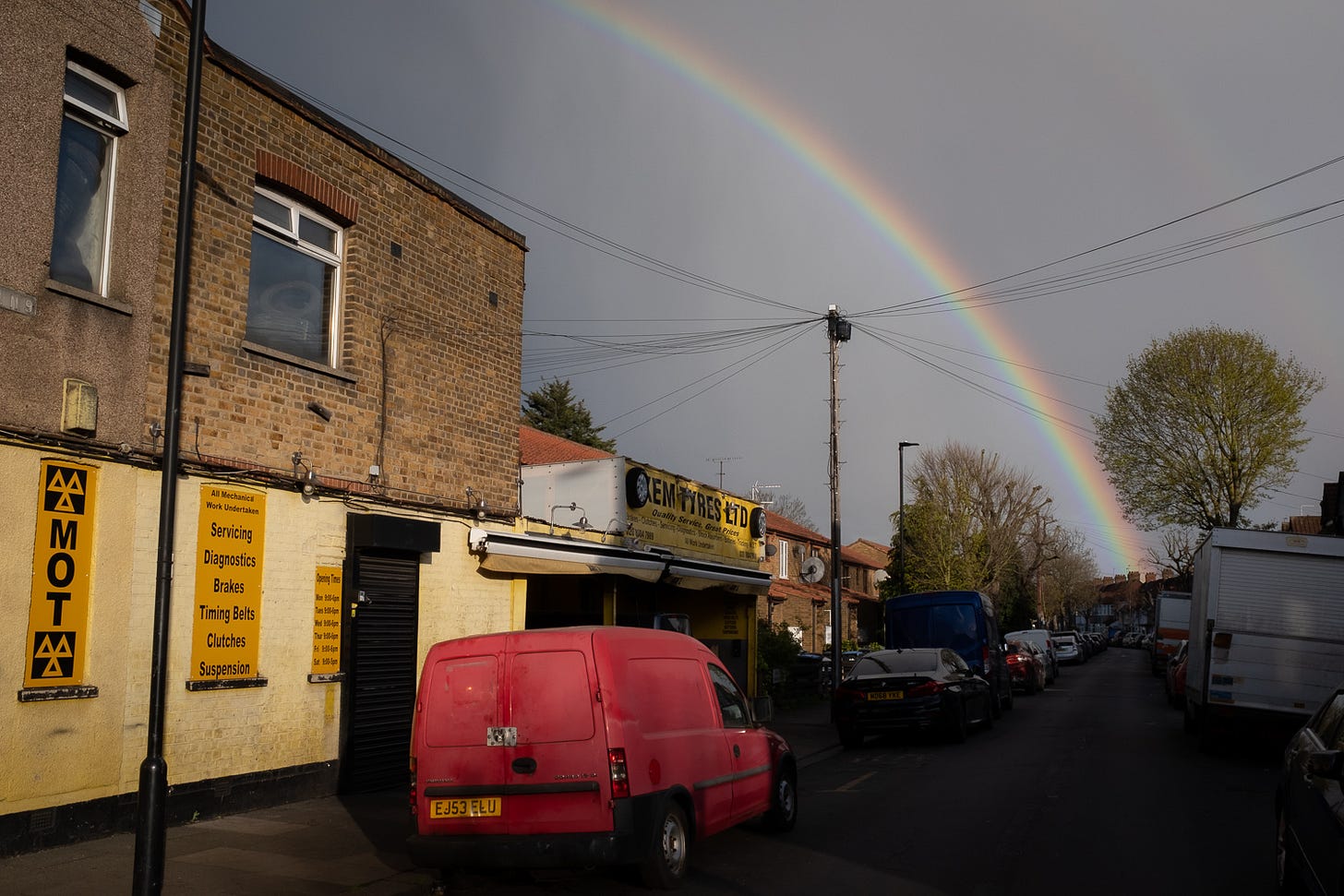Going through Essex in a range rover is like going through Venice on a gondola, or the desert on a camel. It’s the correct way to go. Especially in a white one. This Range Rover was the colour of veneers. Bright white and gleaming. Kyle sat squat in the driver’s seat. He had a thick neck prickled with bristles and a high-pitched Cockney voice. He was a serious man.
Finance had been his game. He’d been a securities broker and made a fortune. 25 years later he retired bored of it all and now spends a few days a week volunteering at the local outdoor water sports centre, taking kids kayaking and fishing.
“I started broking when I was young,” Kyle told me, "didn’t go to uni or anything. Began at a securities house working with French and German guvvies in the 90s. When the Eurozone came along I did euro guvvies…”
He spoke the fluent language of finance and he spoke it quickly. It was hard to keep up. His words slid into a soup of complicated terms…credit swaps and treasury yield calculations, asset purchasing schemes, FFC regulations, intercontinental bond restrictions and implicated securitisation packages… I had no idea what he was talking about.
The gist of it was he worked for a securities broker - facilitating the purchase of securities. I think. He said he worked with all the big players.
I asked what his sons did. There was another volley of corp-speak. One was in credit swaps and the other was trading options. I’d heard of the second and cheerfully piped in that my brother did something similar. He’s a quant trader I told him proudly, pleased to be speaking his language.
“Oh them lot were the ones who fucked everything up before the crash,” he replied, raining on my parade a little offensively.
I asked why.
“You’d get these algorithmic traders who’d come out of uni brilliant at maths. They’d create these products based on probabilities from 30-odd years ago that were so complicated they could barely understand them. They’d sell em on and the end user didn’t have a clue what they were or how to use them. The whole thing was a mess.”
Kyle told me about a German quant trader friend of his who got caught trying to manipulate the markets and had been fined 50/60k and had his licence revoked. It had been the end of his career. But that was a different thing.
“I thought the subprime mortgages caused the crash?” I asked, feeling pleased with my corp speak again.
“Well there was that too. What happened there was America was one big economy built on this bad debt - subprime mortgages. Bankers were selling ‘em off and people were buying them up, thinking they were getting them cheap when in actual fact they were worthless.”
I asked him to clarify which he did patiently.
Prior to the crash compliance was loose, he said. People and companies got away with practically anything.
“As a broker, we weren’t supposed to take positions,” he said, referring to the fact they were supposed to facilitate deals neutrally, “but sometimes we’d have a billion or two on our books.”
“Why because you knew which way they were going to go?”
“Exactly.”
I’d heard stories, as everyone has, of the corruption in finance before the crash. To hear it first-hand was impressive.
“Was it all that corrupt?”
“Yeah back then everyone was doing it,” he shrugged, “You’d get these banks like Deutsche and they’d go out and fuck everyone up.”
“What do you mean?”
“They’d manipulate the market. All the banks were doing it. There was an inner circle for trading.”
Kyle knew the guy who’d run the credit swaps at Bank of America. He’d worked with his wife. At some point shortly before the crash, this guy realised he’d created such a quagmire of mismanagement and casual corruption that he resigned and moved to Dubai. He got out before it all came down and was never prosecuted - very few were. Nevertheless, nobody had heard of him since.
Kyle was nonchalant about the whole thing, unbothered that the crash was possibly the most important event of both our lifetimes. We’re still dealing with the consequences. Populism at home, mistrust of ‘elites’, mistrust of the West, much can be laid at its door.
“In those days, I’d be spending 40/50k a year on expenses,” he continued. He wasn’t bragging, at least his tone didn’t sound it, “We’d go to the O2 and drop 20k on a box. The banks were even worse.”
Compliance was much hotter nowadays he assured me, so all this was supposedly impossible. In reality, it just meant more complicated ways of getting around it.
By now we’d pulled over into a bus stop. I kept asking questions and Kyle didn’t mind answering them. Eventually, I realised I’d better let him get on. He probably didn’t want to spend his Sunday evening in a lay-by with a stranger.
I hopped out of the car and waved him goodbye. The rain had cleared and a sign by the bus stop read Free Manure. I realised I’d only ever had two rides in Range Rovers, both had got rich through corruption.
I found a lay-by nearby. A cascade of rainwater slid across the road. Whenever a car rushed through, a rainbow of mist appeared like a genie from a lamp.
A taxi pulled in on its way back from Stansted. I got in the back. The driver had thick black hair swept neatly to the side and his name was Mohamed. He was a quiet man and said he was a little tired. It was 16 days into Ramadan.
“Does it get harder as you go?” I asked.
He said it didn’t; it was the opposite in fact. To begin with, the previous 11 months of eating and drinking take their toll as the body craves what it can’t have.
“It makes you appreciate and be grateful for what you have,” he said through the mirror, “Just being alive. Breathing, you know. Just breathing,” he contemplated a moment, “It makes you realise we are not some machine. We could have been anything but God chose us to be this, to be human. We are very lucky. God has given us so much.”
I asked if he was looking forward to Eid. He was, of course, but he was quick to explain the festival’s not all about the feast that follows the fast. It’s about forgiveness. Nevertheless, he described the traditional dishes they’d have and told me about his wife, “You never know when you meet your wife if they will be a good cook or not, if they will make you nice meals. It’s very important!” he chuckled “My wife is a good cook!” So he was looking forward to the festival.
He told me they’d met in Turkey, where they were both from.
“Where abouts?”
“The south-east part.”
“Near the earthquake?” I asked sombrely. He nodded sombrely in response.
“An aunt and two cousins left us.”
“I’m so sorry.”
“Overnight you know. Just suddenly, they’re gone. She left a husband and three children behind. That’s what I’m saying, we have so much to be grateful for.”
Mohamed told me 12 cities had been hit across an area the size of Germany. He thought that if it had been Germany, all of Europe would have come together. As it was the Turkish government was doing all it could.
We were coming into Enfield. He changed the subject and asked me about hitchhiking. He called it hijacking.
“In Turkey, lots of people hijacking, but here it’s not so common.”
“No, it’s true,” I replied, “it’s not very popular any more. People are too scared I think.”
“Do you ever feel fear when you’re hijacking?”
“No not really. People are good generally.”
“Yes, people are good, man. I always say, the world turns because of good people. If there weren’t any, it would have stopped turning long ago.”
Generally, I agreed.





Great work on this one Nico. Enjoyed it a lot.